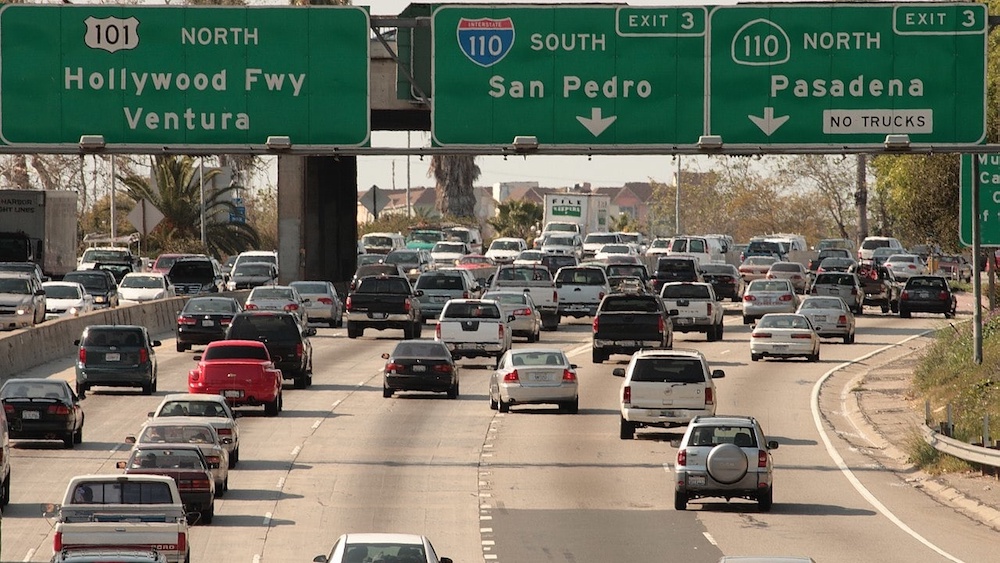If you’re interested in sharing your opinion on any cultural, political or personal topic, create an account here and check out our how-to post to learn more.
____
For decades, the federal government funded city planners to pave highways through Black communities. This was done to give white suburbanites easy access to city centers, but also effectively cemented the divide between many Black and white communities across the United States. These decisions also overexposed Black communities to the invisible air pollution spewed from the constant rumble of cars, trucks and buses across their front steps. Transportation-related air pollution is linked to a host of ill effects, and these impacts hit Black communities the hardest. African Americans are exposed to 66% more air pollution and are three times more likely to die from asthma compared to white Americans, for example.
This public health crisis has gone largely unaddressed, until now.
Part of the potential suite of tax breaks Congress may pass before the end of the year is a $7,500 tax credit for anyone who buys an electric car or truck. Electric cars, trucks and buses produce no tailpipe emissions — actually, they don’t have a tailpipe at all — making them one of the best ways to cure air pollution. Electric vehicles remain a small part of the U.S. vehicle market, but are quickly gaining popularity. One of the biggest remaining barriers to having more electric vehicles on our roads is their upfront price, which is exactly what the federal tax credit for electric vehicles addresses. The chance to actually pass federal legislation doesn't come around too often these days, so I hope you will join me in telling Congress to extend this tax credit.
Unfortunately, the first generation of electric cars were out of reach for many in the communities that would benefit from them the most. Their upfront cost, lack of places to charge and poor information on how they work created barriers to going electric that remain today. But the communities that are overexposed to air pollution can’t wait any longer for clean transportation options. Emissions from transportation have been increasing in nearly every major metropolitan area in the U.S. and 43% of Americans live in counties with unhealthy air.
Congress has a chance to change this dynamic. The $7,500 tax credit for electric cars and trucks makes many electric models cost the same or even less than similar cars or trucks that run on gas. When the fuel and maintenance savings are factored into what it costs to drive an electric versus a gas model, choosing an electric one becomes a no-brainer if the upfront costs are similar. Senate Democrats also floated a $450 billion initiative that would swap out a gas-powered clunker for a new electric car, and would provide higher discounts to lower-income households. Both of these measures must make it over the finish line if we are to start addressing the inequities caused by transportation systems.
Grassroots organizing is also changing this dynamic. The organization I co-founded, EV Hybrid Noire, works to spread awareness about electric cars in communities of color by turning networks of diverse electric car drivers across the country into grassroots supporters of electric car technology. In our outreach, we often find that the upfront cost of an electric car is the biggest hurdle for someone looking to go electric. By knocking $7,500 off the purchase price of an electric car, the tax credit directly addresses this barrier, and helps communities access the benefits of driving on electricity.
It’s not easy to get federal legislation passed, especially when the oil industry is working to block progress by spreading false information and funding politicians in favor of eliminating electric vehicle tax breaks while keeping oil and gas subsidies on the books. The tax credit also isn’t a perfect policy. A point of sale rebate, with higher amounts going to frontline communities, would help those that don’t have sufficient tax liability get into an electric car. But the tax credit is what we’ve got and shouldn’t be scrapped in favor of trying to get something done from scratch.
Congress can begin to fix the infrastructure decisions that put Black communities on the frontlines of air pollution by extending the federal tax credit for electric vehicles. Doing so will make these clean cars accessible for those that need clean air the most.
Click here to learn more.
____
Shelley Francis is Co-Founder & Managing Partner of EVHybridNoire, the nation’s largest network of diverse electric vehicle drivers and enthusiasts.
